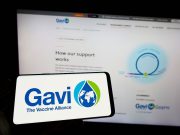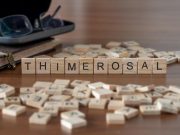Vaccination found to be safe and induces polyclonal immune responses against vaccine targets
By Elana Gotkine HealthDay Reporter
TUESDAY, April 9, 2024 (HealthDay News) — The novel viral-based personalized cancer vaccine, TG4050, which encodes up to 30 patient- and tumor-specific sequences is feasible and safe for patients with resected head and neck squamous cell carcinoma, according to a study presented at the annual meeting of the American Association for Cancer Research, held from April 5 to 10 in San Diego.
Ana I. Lalanne, Ph.D., from the Institut Curie in Paris, and colleagues randomly assigned eligible patients with completely resected stage III or IV human papillomavirus-negative squamous cell carcinoma of the oral cavity, oropharynx, hypopharynx, or larynx to receive TG4050 immediately (arm A; 17 patients) or upon relapse (arm B; 16 patients) after completion of standard-of-care adjuvant radio-chemotherapy.
The researchers found that TG4050 adverse events were mild to moderate, and most of them were injection site reactions. No relapse occurred in arm A, and three patients relapsed in arm B after 6.2, 8.8, and 18.5 months, after a median follow-up of 16.2 months. T-cell responses were de novo or amplification of preexisting responses (82 and 18 percent, respectively). There was a median of six vaccine responses observed. An effector memory phenotype was indicated in cytometric characterization of vaccine-specific T-cells. In five patients, T-cell receptor sequencing of blood T-cells evidenced expansion of tumor-infiltrating lymphocyte clonotypes. In the blood of two patients, the most expanded vaccine-specific CD8 T-cells represented oligoclonal expansions expressing an effector phenotype.
“Our findings indicate that TG4050 is safe and promotes an immune response against several neoantigens in most patients,” coauthor Olivier Lantz, M.D., Ph.D., also from the Institute Curie, said in a statement.
Several authors disclosed ties to pharmaceutical companies, including Transgene, which sponsored the study and jointly funded it with NEC.
Copyright © 2024 HealthDay. All rights reserved.



















